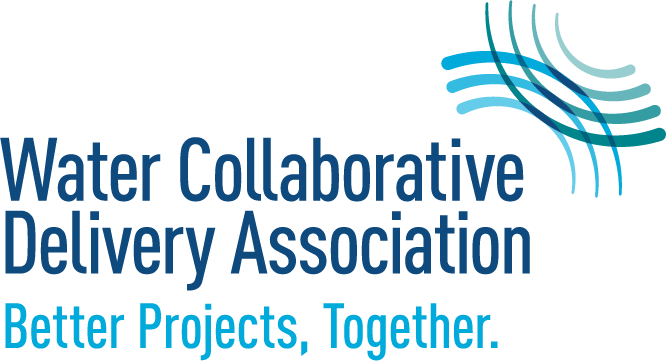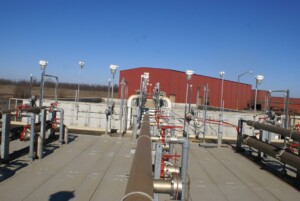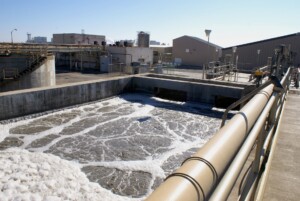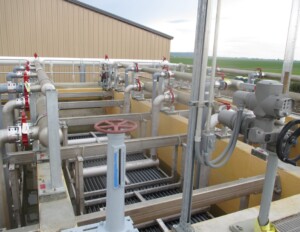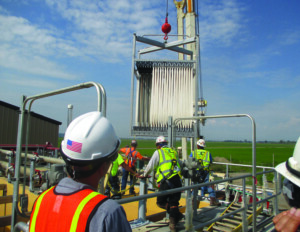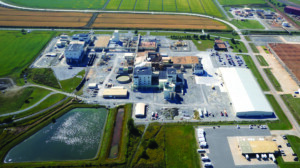Challenge
BioKyowa, Inc., in Cape Girardeau, Missouri, a clean industrial facility, produces a line of biomedical products. However, the process for these products generates a highly variable amount of high-strength chemicals in the wastewater. Although BioKyowa’s onsite 1.6 mgd wastewater treatment plant (WWTP) does not treat human waste, it does receive a form of E. coli bacteria as a byproduct of the manufacturing process. As a corrective measure, the Missouri Department of Natural Resources (MDNR) placed limits for E. coli on water released from BioKyowa’s wastewater treatment plant into the Mississippi River, and gave the company only 13 months to address this treatment process in order to comply with the regulation.
Approach
The $8.1 million fixed-price design-build contract was sole-sourced to Black & Veatch, which has a long history of assisting BioKyowa with wastewater treatment at its Cape Girardeau facility. While working on solutions to BioKyowa’s regulatory challenge, Black & Veatch identified the potential to fast-track an alternative, state-of-the-art process using membrane bioreactors (MBRs) to remove bacteria, significantly improving the quality of wastewater effluent and meeting the tight permit compliance schedule.
Using the fixed-price design-build delivery method made it possible for Black & Veatch to begin working on the plant upgrade before the design had been completed, with the following approach.
- Black & Veatch worked closely with MDNR to gain rapid acceptance of both the fast-track delivery method and the innovative equipment that would be used.
- Black & Veatch and its self-perform construction subsidiary Overland Contracting, Inc. (OCI) designed and built the upgrades and expansion to the wastewater treatment facility in only 13 months to meet regulatory timelines.
The project also included design and construction of new aeration basins, membrane tanks, a membrane-equipment building, electrical upgrades and ancillary equipment, such as blowers, sludge pumps and additions to the existing SCADA.
The design-build also had to address technical construction challenges on the plant site posed by unsuitable soils and the potential for seismic activity (the plant is less than 50 miles from the New Madrid Fault). Working collaboratively with the geotechnical advisor, Geotechnology, an innovative foundation system consisting of placing compacted stone columns at the plant was adopted. This action saved BioKyowa more than $500,000 in construction costs and shortened the schedule by six to nine months.
Results
The new facility was delivered within the BioKyowa’s $8.1 million budget and not only on time—but just 13 months from preliminary design to substantial completion. In operation since August 2014, the upgraded plant has an unblemished record of regulatory performance for bacteria reduction. The level of MBR water treatment technology goes beyond the norm for an industrial discharger, demonstrating BioKyowa’s commitment to exceeding regulatory requirements. As the demand for BioKyowa’s products continues to grow, the newly upgraded WWTP now enables the plant to expand production, create new jobs, and contribute to Cape Girardeau’s economy—while decreasing its environmental impact on the Mississippi River. The plant’s design, which uses modular components, will facilitate future expansion.
